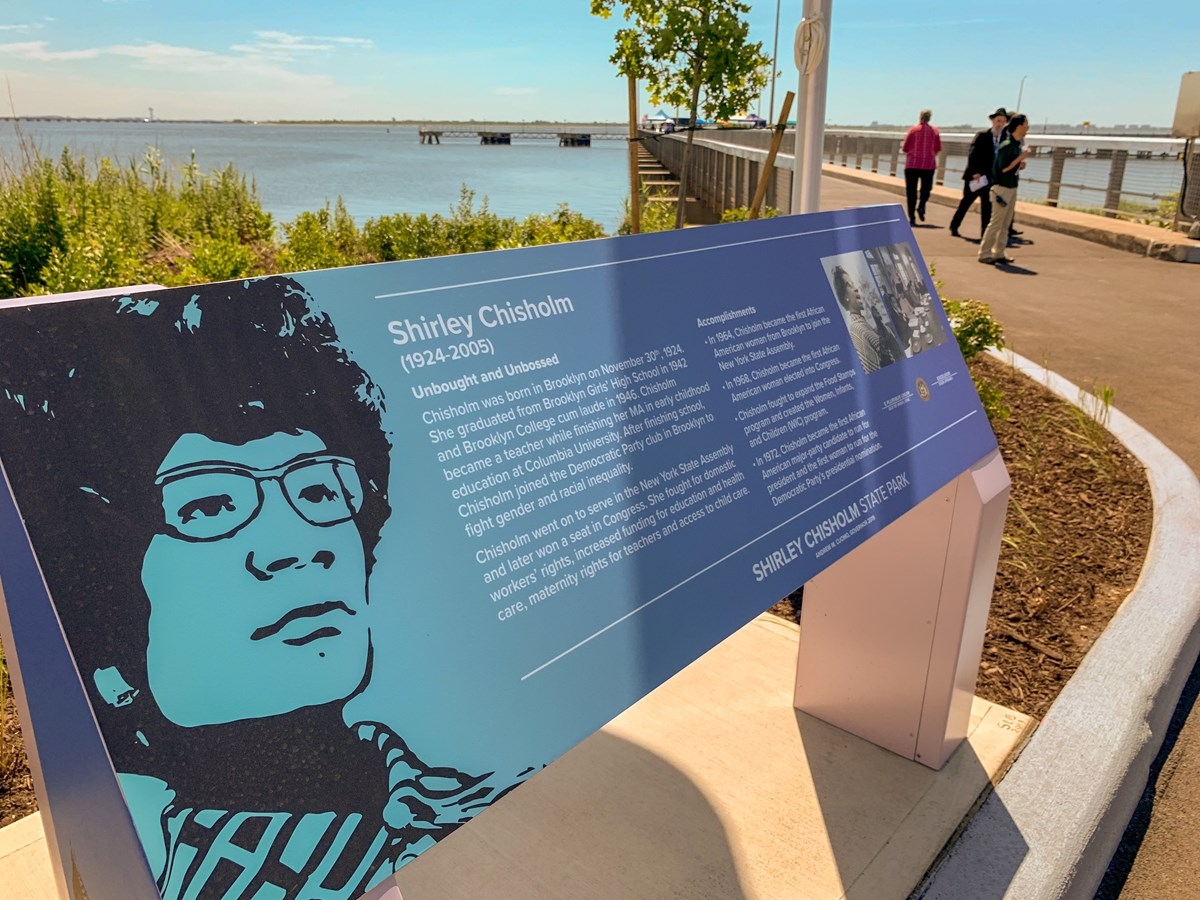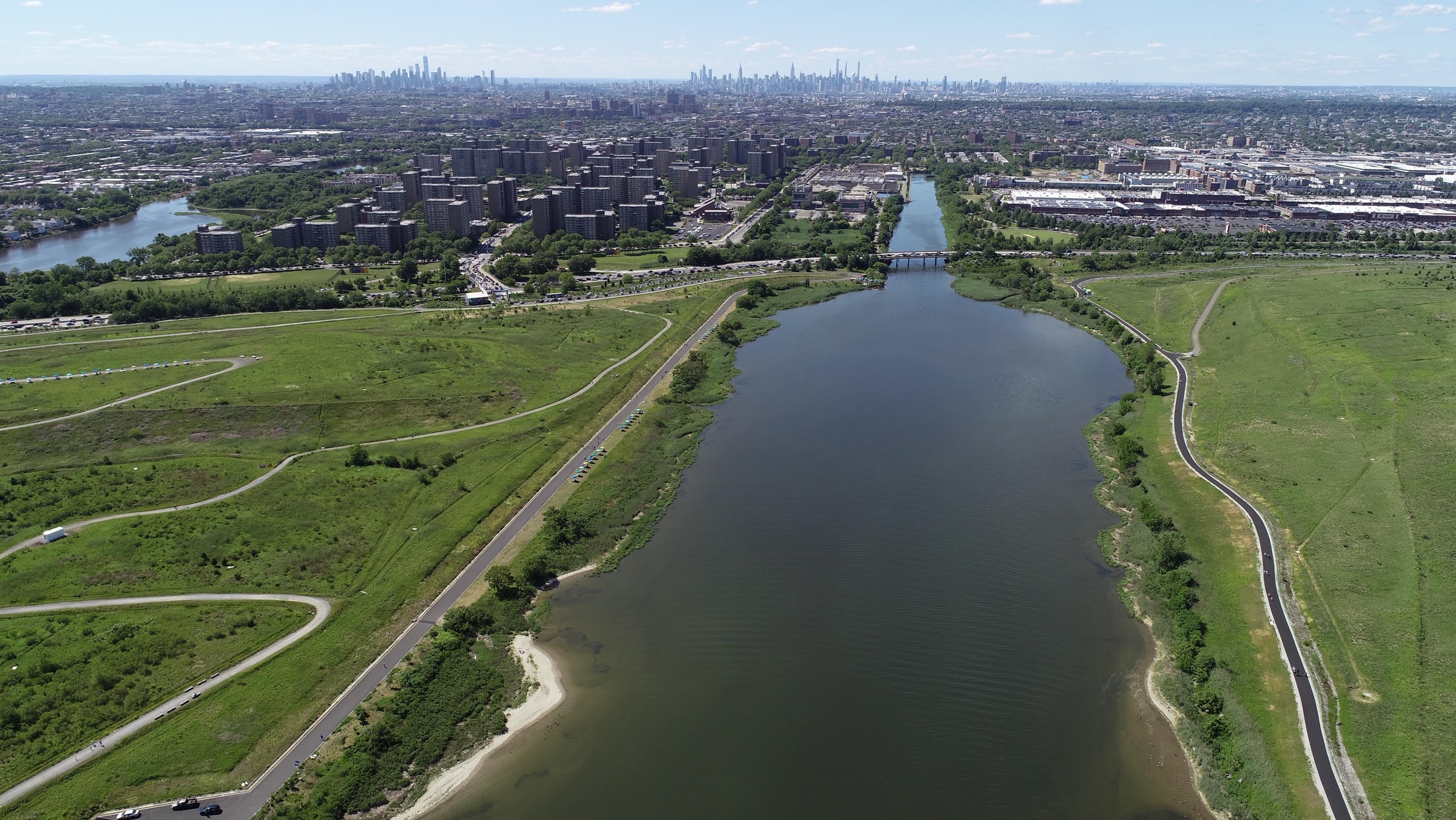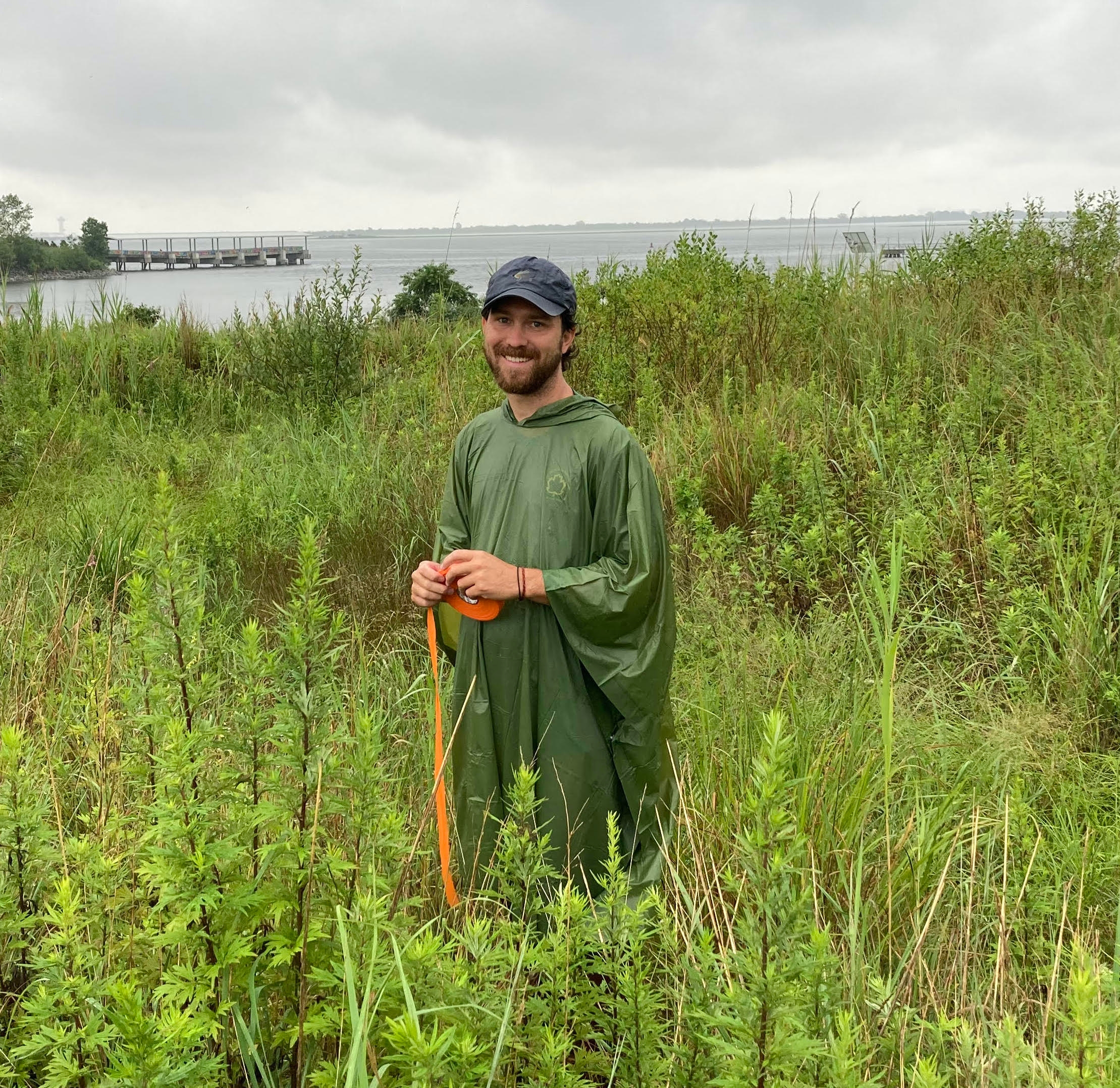XMNR alum celebrates one year as environmental director of a transformed Brooklyn park
September 24, 2020

By Lindsay Key
When Virginia Tech Executive Master of Natural Resources (XMNR) alum Tim Howell began his Master’s degree in 2018, he already had several years of experience in the natural resources sector, working as a naturalist intern, environmental educator, park maintenance worker, and park supervisor for New York State Parks.
But Howell said the one year accelerated degree—and its focus on sustainability leadership—helped him climb yet another rung on the ladder, landing him as the first ever Deputy Park Director (Environmental) for Shirley Chisholm State Park in July 2019.
In his new role, Howell is responsible for managing all the environmental and operational aspects of Shirley Chisholm State Park, including natural resource management, land stewardship, and environmental education programming. Originally from New York, Howell had worked in several parks there, including Rockefeller State Park Preserve and Taconic Outdoor Education Center, before moving to the park in Brooklyn.
The 407-acre park, located in Brooklyn, NY, just opened last year as part of The Vital Brooklyn Initiative, a state-funded community-based effort to improve the well-being of residents of central Brooklyn through enhanced opportunities for affordable housing, ambulatory medical care, and education and job training, as well as creating more and better park and recreation spaces very locally. At an altitude of 130 feet above sea level, Shirley Chisholm State Park hugs Jamaica Bay and offers some of the best panoramic views of the Empire State Building, the Verrazano Narrows Bridge, and the Jamaica Bay. It was named in honor of Shirley Chisholm, a Brooklyn-born trailblazer who was the first African American Congresswoman, and the first woman and African American to run for President.

Shirley Chisholm State Park is unique in that it sits atop the former Pennsylvania and Fountain Avenue landfills, which were operated by the New York City Department of Sanitation from 1956 to 1983. However, in the early 2000s, work began to convert the space into a park, which included installing a plastic membrane over the landfills, dumping more than 1.2 million cubic yards of clean soil across the site, and planting more than 35,000 trees, shrubs, and native grassland species.
Today, the thriving ecosystem of coastal meadows, wetlands, and woodlands is home to a wide range of species, including opossums, raccoons, rabbits, and native pollinators including monarch butterflies. Located along the Atlantic flyway, it is a crucial stopover habitat for migratory birds, said Howell. “This idea of the landfill being turned into a park has been something that has been talked about since the landfills closed in the eighties,” said Howell. “People who have been long-term residents of neighboring housing developments that surround the park have been hearing about it for a while, and so now to finally see it come to fruition in 2019—they’re just so happy it’s here.”

The park offers ten miles of multi-use biking, hiking, and walking trails; picnicking spaces; and environmental education programs, including fishing and guided bird walks. Free loaner bikes are provided with valid ID through a partnership with Bike New York at the park’s Bike Library. The park is a hot spot for birders. “We have a regular group of people who come every day,” said Howell. “They talk about the stench and the seagulls from the previous landfill that was here and how they’re just so happy about the transformation.”
In his position, Howell oversees a staff of more than twenty people. Although he learned a lot through the environmental science courses in the XMNR program (his Bachelor’s degree was in Social Science with a minor in Criminal Justice), he said the most valuable aspect of the program for him was the leadership focus and periodic meetings with his cohort. “Honestly, I didn’t really know how much of the program was going to be leadership-oriented,” said Howell. “I’m really grateful that I was able to learn some of the leadership strategies and techniques, because I feel that is what I gained from the program the most, learning how to work with those different leadership styles.”
Although COVID-19 has altered some of the park’s educational programming, Howell said he’s encouraged by the number of people who still come to the park every day and the impact it's having on the community. “Over the last year the park has become a critical resource for the community during the ongoing pandemic,” he said. “I hope that it can continue to be a welcoming and safe space for the community to connect with each other and to the natural world.”

Tim Howell has 5+ years experience in environmental education, natural resources, and conservation. Currently he oversees operations, maintenance and natural resource management at Shirley Chisholm State Park in Brooklyn, NY. He works to ensure that all maintenance and operational activities incorporate natural resources management to favor native biological diversity. He holds a Bachelor of Science degree from St. Thomas Aquinas College and a Master of Natural Resources from Virginia Tech.


